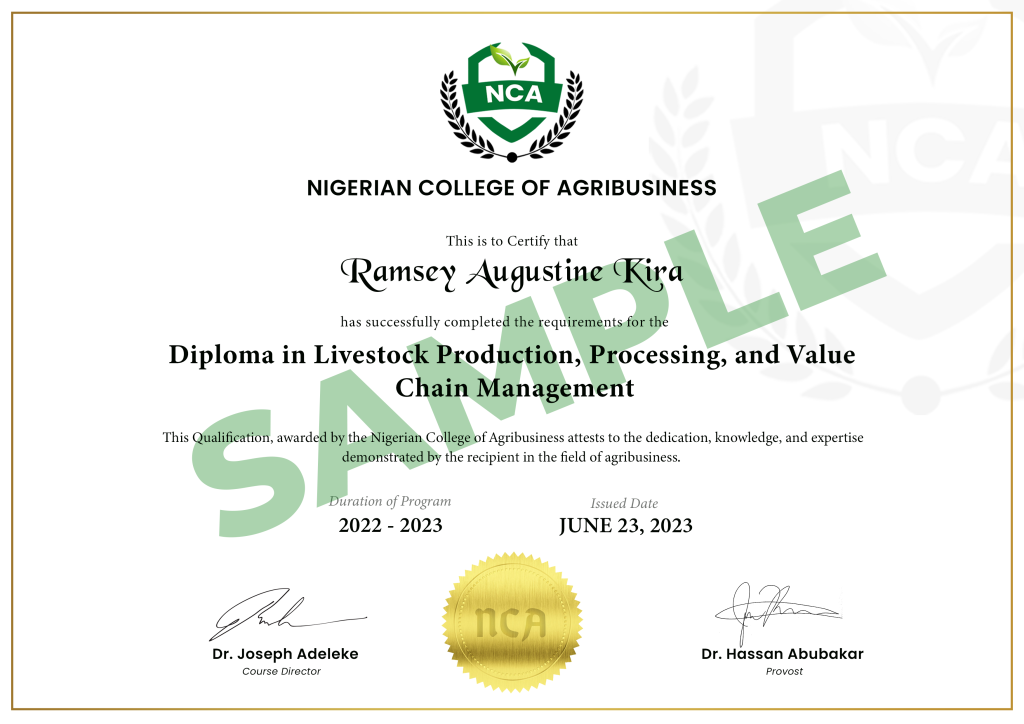December 5-7, 2023
3 Days
N250,000 (10% discount for early birds)
$400
Online
This intensive 3-day workshop is designed to equip agricultural professionals, exporters, and regulatory authorities with the knowledge and skills required to meet and exceed phytosanitary standards for agricultural exports. Participants will gain insights into international phytosanitary regulations, learn best practices for pest risk management, and discover strategies for ensuring the safe and efficient movement of agricultural products across borders.

Beneficiary Bank: Zenith Bank Plc
Account Number: 1228461510
Account Name: Nigeria College of Agribusiness
Do you need any further assistance regarding this program, send an email to: [email protected] or send chat with a program executive on WhatsApp via: 08109532513 (Nigeria), +2349129158989 (International)
Ready to Begin your application process? Click on “Apply Now” to access the application form

Our mission is to cultivate a vibrant, sustainable and profitable agribusiness sector that drives economic growth and social progress across Africa and beyond.
We are committed towards educating a new generation of agribusiness sector leaders that will transform the economic fortunes of the African continent
© NCAEDU 2023 All Rights Reserved.